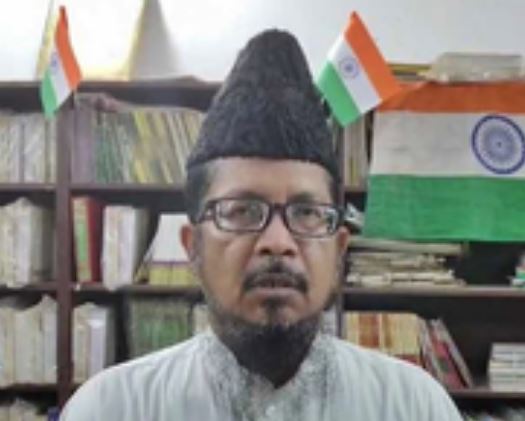Bareilly: After Prime Minister Narendra Modi made a forceful argument for adopting the Uniform Civil Code (UCC) during his Independence Day speech Thursday, Maulana Shahabuddin Razvi, the President of the All India Muslim Jamaat (AIMJ), claimed that Muslims in the country are not happy with the Prime Minister’s remarks.
During his speech from the Red Fort, the Prime Minister said, “As we celebrate the 75th year of the Constitution, it is our duty to realise the dreams of its framers, who envisioned a Unified Civil Code. The Supreme Court has also urged us to address this issue.
“The spirit of the Constitution and the call of our time demand that we discuss this crucial issue openly. Everyone should contribute their views. Laws that divide the country by religion and foster discrimination have no place in modern society.”
Reacting to the PM’s remarks, Razvi said, “Prime Minister Modi gave a speech from Red Fort wherein he talked about implementing the Uniform Civil Code. The entire Muslim community of India is not satisfied with the words of PM Narendra Modi.”
He added, “The reason for this is that every society and religion have different principles of living life which cannot be included in the Uniform Civil Code. That is why ‘One nation, One election’ is not possible in our country. If the UCC is implemented, it could lead to societal fragmentation, disrupting the harmony among people of all religions who live together in brotherhood.
“So, I request Prime Minister Modi not to make the mistake of implementing UCC,” Razvi said.
In his speech, the Prime Minister also said, “The Supreme Court has frequently deliberated on the Uniform Civil Code in our country. It has issued several orders, reflecting a widespread belief that our current civil code is effectively a communal and discriminatory one. It is imperative that we establish a secular civil code in the country. Only then can we eliminate discrimination based on religion.”
The Uniform Civil Code is a proposed legal framework that aims to replace personal laws, which are specific to various religions, with a common set of laws governing every citizen. These personal laws cover areas such as marriage, divorce, inheritance, adoption, and maintenance.
